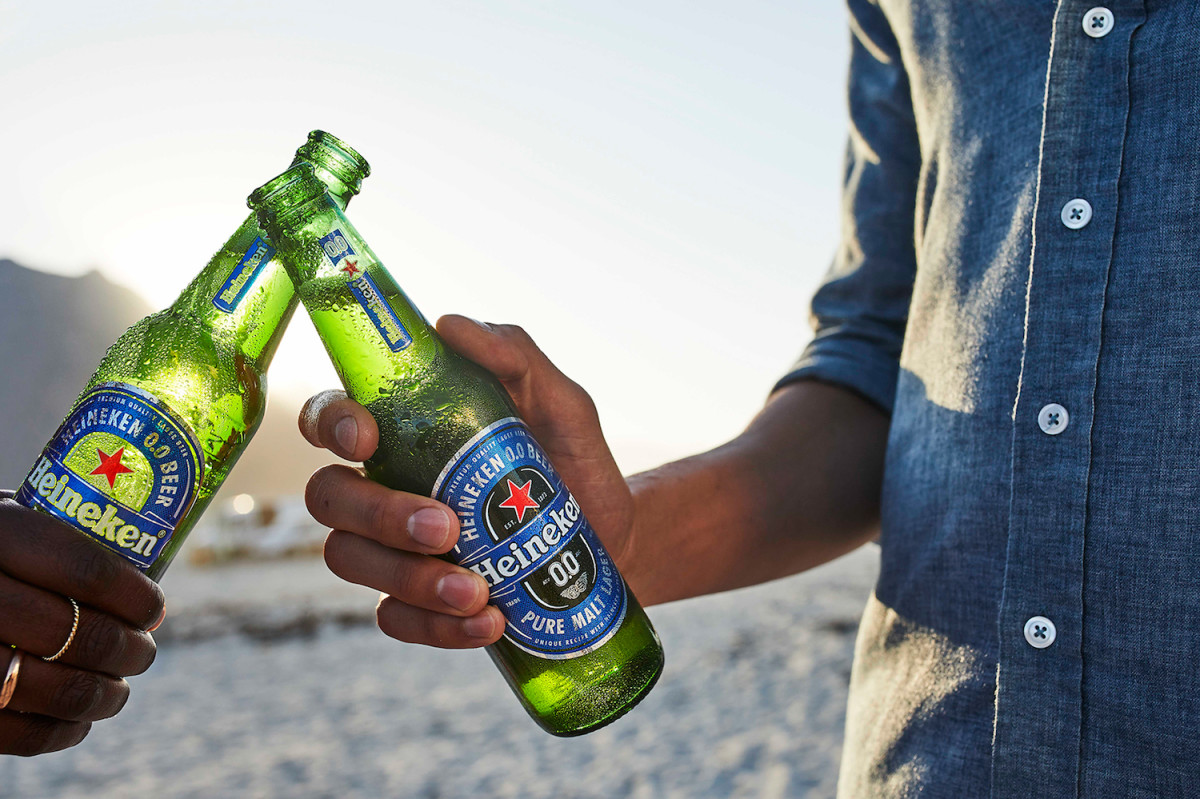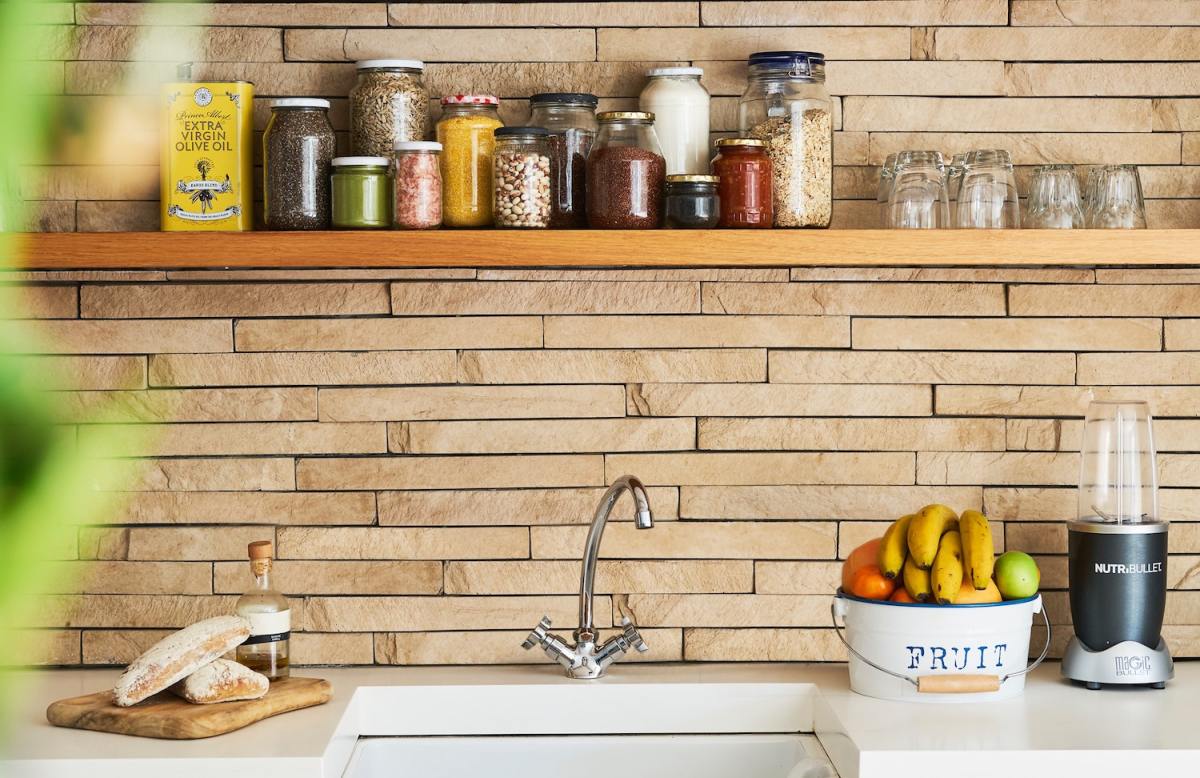Sponsored content
While ringing in the New Year this year requires less confetti and more contemplation, the hope and promise of a fresh start remains the same. But the world's best intentions won't make sticking to resolutions easier this year. According to a 2019 survey by YouGov, only 7 percent of Americans said they'd stick with all of their resolutions (while 19 percent managed to stick with some but not all of their New Year plans).
According to many experts, the key to making big changes is changing everyday behavior. Instead of shooting for the stars and then losing motivation prematurely, check out these six daily habits that you can change now and stick to them for weeks, months, and years.
1. Ditch the annoying phone alarm and wake up to your favorite music instead
 Preferred beats make getting up less annoying. Shutterstock
Preferred beats make getting up less annoying. Shutterstock
How you wake up sets the tone for your day. If your phone is emitting a high-pitched alarm tone, it is not a good sign. A study from Australia found that waking up to a melodic alarm - like the actual music you want to hear at any other time of the day - led to a better transition from sleep to wakefulness. Respondents who woke up to musical alarms noticed less drowsiness than those who used traditional (i.e., annoying) alarm sounds. Before you go to bed tonight, tell your smart speaker to play your favorite current song at the time you want to wake up, and you're guaranteed to get at least one thing in motion.
2. Reward hard workouts with a non-alcoholic post-workout beer
 Enjoy a cold after a workout - without worrying about the effects of alcohol. Courtesy of Heineken
Enjoy a cold after a workout - without worrying about the effects of alcohol. Courtesy of Heineken
The debate about whether or not to enjoy a beer after a workout has been going back and forth for years. Beer contains the vitamins, electrolytes, and carbohydrates that our bodies sometimes crave after a long run, exercise session, or swim in the pool. With Heineken® 0.0, you can now mash a post-workout beer anytime, any day. Heineken® 0.0 has all the taste of a classic Heineken®, but without alcohol. A tasteful reward is a smart way to help you maintain your fitness goals. With Heineken® 0.0, you can now enjoy a sweaty beer anytime, anywhere.
3. Embrace the cold shower seriously
 Start your morning with an icy shower and see the benefits throughout the day. Shutterstock
Start your morning with an icy shower and see the benefits throughout the day. Shutterstock
Getting out of a warm bed in the dead of winter is difficult. Getting into a cold shower is even more difficult, but it's worth it. Cold showers are associated with a number of mental and physical health benefits. While athletes instantly understand how cold water can help sore muscles recover, the mental benefits are a little more nuanced. When you step into a cold shower, you get a rush of adrenaline - an unrivaled wake-up call - and both norepinephrine and dopamine to reduce stress and increase alertness.
If taking a full ice shower is too difficult, get into it first. Here's how: After a few minutes of your normal hot shower, switch to cold for a minute or two and then back to hot. Switching between hot and cold expands and contracts your blood vessels for better blood flow, so you get benefits even if you get involved.
4. Get a better night's sleep by limiting screen time before bed
 Open a book for 30 minutes before you get started. Shutterstock
Open a book for 30 minutes before you get started. Shutterstock
It's hard to overstate the importance of getting a good night's sleep every night. Research shows that it affects everything from sexual health and stress to our ability to concentrate. Think of sleep as the foundation for any other area of improvement in your life. While many factors affect the quality of sleep, eliminating screen time right before bed is the easiest way to get a good night's sleep.
Keep your device for at least 30 minutes before you hit the hay (ideally in a different room) and stop streaming the latest series too. Are you looking for fun while relaxing? Go old school with a real paper book (e-readers are fine as long as they're not lit).
5. Intermittent fasting might be worthy of the hype
 Try the 16: 8 method of intermittent fasting for healthy benefits beyond weight loss. Unsplash
Try the 16: 8 method of intermittent fasting for healthy benefits beyond weight loss. Unsplash
When it comes to losing weight - especially fat - it might be worth looking into intermittent fasting. The concept of intermittent fasting involves limiting eating times, either by nosing certain hours per day or by one or two fasting days per week - no calorie counting or juice cleansing required. A 2019 study found that intermittent fasting can have benefits beyond body composition, including less stress, less inflammation, and improvements in memory.
Would you like to see if it works for you? Try the 16: 8 method, which involves fasting for 16 hours and staying open to eat eight hours a day. The most common way to stick to this schedule is to start eating at noon and finish dinner at 8 p.m. for a full sixteen hours of fasting before noon the next day. (You can still have your morning coffee - just make it black.)
6. Take time for a moment of mindful meditation
 Reset between calls for refocus and other great rewards. Shutterstock
Reset between calls for refocus and other great rewards. Shutterstock
If meditation is not part of your daily routine, now is the time to start. Like a good night's sleep, the health benefits of meditation extend to almost every aspect of life, from reducing stress and improving focus to increasing your pain threshold (hey, that might be useful). As with any new habit, it's best to start small and move up. Meditation experts suggest that just 10 minutes a day is enough to reap the benefits of the practice. Try it after your morning cold shower for the full 2021 experience.
Subscribe to YouTube for access to exclusive gear videos, celebrity interviews, and more!
